1. Responsibility for your own learning
2. Need for standardization
3. Administration: see challenges in how to manage this
4. Mixed attitudes towards open education. For people who are hesitant it may be because of not knowing about the topic or feeling insecure in how to work with setting up the course or what tools to use.
5. Opportunities that arise with openness
5.1. Possibly reaching students that has previously not been able to benefit from university education, such as people already working and looking for a more flexible learning: fulfilling the goal of lifelong education.
5.2. Arise self-regulated Learning
5.2.1. learning strategies
5.2.2. work technique
5.2.3. thinking strategies
5.3. Learning for my interests
5.4. I am planning my career
5.5. Benefit from others
5.6. Knowledge is doubled and further developed
5.7. to share my thinking
6. Open to sharing teaching materials, of course it has to be clearly licensed.
7. Openness in terms content, idea sharing and application of course content, application of the content and the use of information from other sources
8. PBL Group 4
9. Risk of teachers becoming talking heads
10. Dangers associated with going open
10.1. Complex IP issues: Although OER use open licenses in part to reduce complexity around intellectual property, issues do arise. Open licensing in itself can be a challenge to navigate; in addition, third-party materials like media and images may introduce complexity into any OER project.
10.2. If the subject matter is a controversial one, a lot of hate and threats might ensue.
11. Tools for open education
11.1. Wordpress
11.1.1. Any theme
11.1.1.1. Avada
11.1.1.2. TagDiv Newspaper
11.1.2. LMS themes
11.1.2.1. WPLMS
11.1.2.2. Guru
11.1.2.3. Academy
11.2. Microsoft Family
11.2.1. Sway
11.3. Moodle
11.4. Google Drive
11.5. Webcreate
11.5.1. Weebly
11.5.2. Jimbdo
11.6. Most popular Education Tools
11.6.1. Edmodo
11.6.1.1. connects teachers and students, and is assimilated into a social network
11.6.2. Socrative
11.6.2.1. to create exercises or educational games
11.6.3. Projeqt
11.6.3.1. to create multimedia presentation, with dynamic slides
11.6.4. Thinglink
11.6.4.1. to create interactives images with music, sounds, text and photographs
11.6.5. TED-Ed
11.6.5.1. to create educational lessons
11.6.6. ck-12
11.6.6.1. to reduce the cost of academic books
11.6.7. ClassDojo
11.6.7.1. to improve students behavior
11.6.8. eduClipper
11.6.8.1. to share and explore references and educational materials
11.6.9. Storybird
11.6.9.1. to promote writing and reading skills
11.6.10. Animoto
11.6.10.1. create high-quality videos in a short time
11.6.11. Kahoot
11.6.11.1. game and questions
